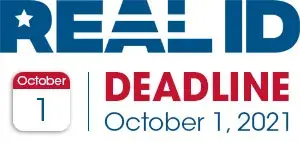 Frequently asked questions and answers regarding extensions to the compliance deadline that DHS may grant to noncompliant states.
Frequently asked questions and answers regarding extensions to the compliance deadline that DHS may grant to noncompliant states.
Q. What is an extension?
A. Federal agencies may not accept for official purposes driver’s licenses and identification cards issued by states that do not meet the requirements of the REAL ID Act. However, the Act authorizes the Secretary of Homeland Security to grant extensions of time to meet the REAL ID requirements to states that provide adequate justification for noncompliance. Federal agencies may accept for official purposes driver’s licenses and identification cards issued by noncompliant states that have been granted extensions by DHS.
Q. How long will an extension last?
A. The length of an extension is determined at the discretion of the Secretary.
Q: Why are most states receiving extensions for less than 12 months?
A: All but four of the 56 states/territories will be issuing REAL ID-compliant licenses/IDs by early 2019 and won’t need a full year to achieve full compliance with all REAL ID requirements.
Q. What happens when a state’s extension expires?
A. When a state's extension expires, the state is subject to the statutory prohibition against Federal acceptance for Federal purposes of the state's driver's licenses and identification cards. However, the Secretary may grant states with an expired extension a short “grace period” before Federal agencies begin REAL ID enforcement actions at nuclear power plants, Federal facilities, including military bases, and at commercial airports. States that do not receive an extension are subject to REAL ID Enforcement on January 22, 2019.
Q. How will DHS determine whether to grant an extension to a jurisdiction?
A. DHS will consider the following factors in determining if a state has provided adequate justification for noncompliance:
- Has the highest level executive state official overseeing the state’s Driver Licensing Authority committed to meet the standards of the REAL ID Act and implementing regulation;
- Has the state documented: the status of both and unmet requirements; plans and milestones for meeting unmet requirements; and a target date for beginning to issue REAL ID compliant documents;
- Has the state participated in periodic progress reviews with DHS on the status of unmet requirements?
Q. Will an extension be renewable?
A. Extensions are renewable at the discretion of the Secretary provided the state has provided adequate justification for continued noncompliance. Renewal is not automatic. Extensions will be renewed only if the state demonstrates continuing progress in meeting the REAL ID standards.
